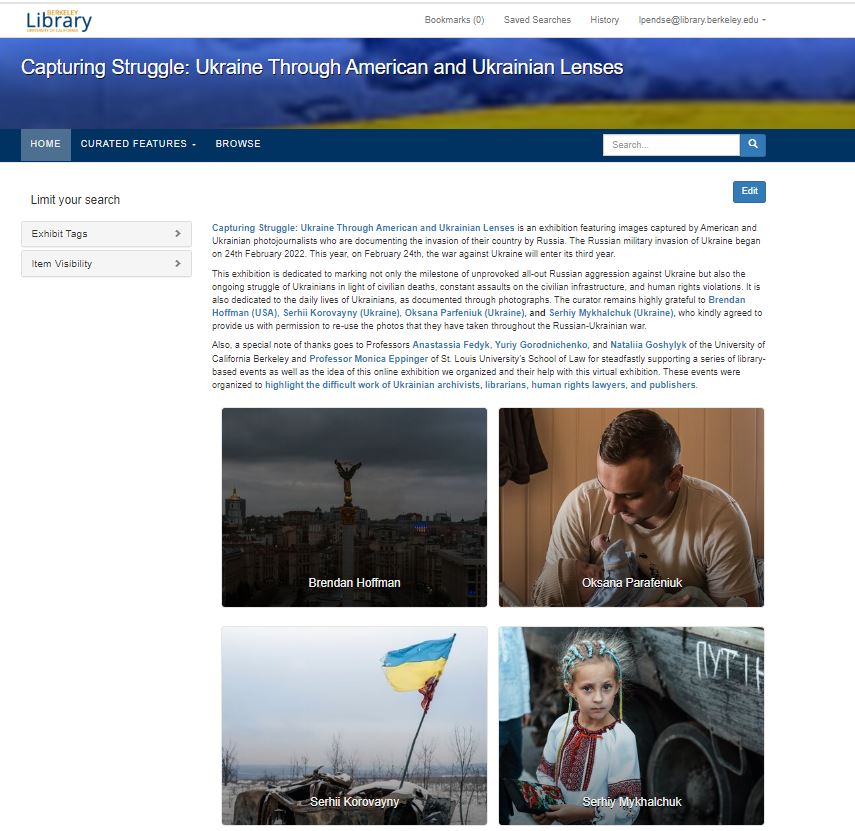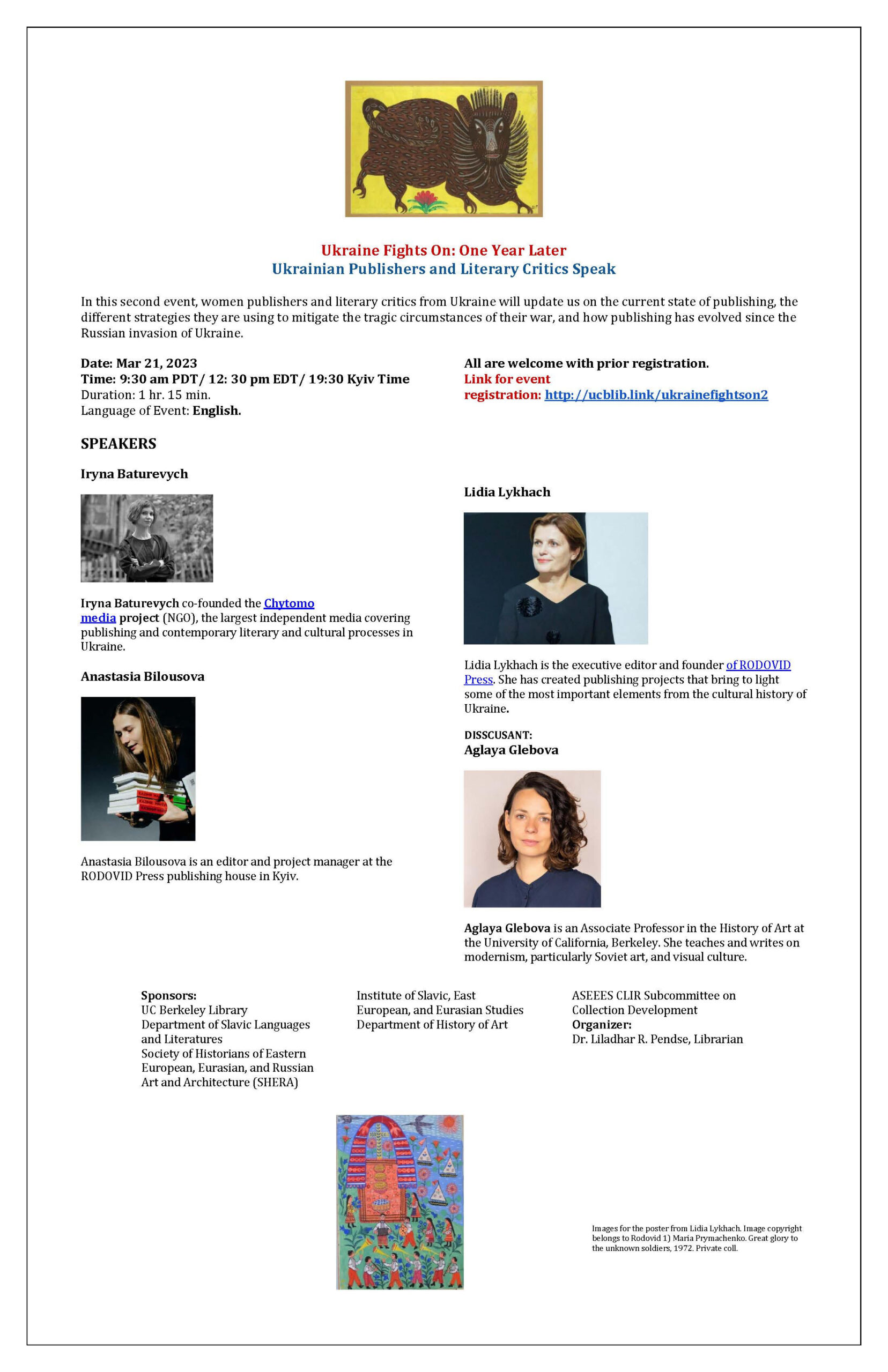Ukraine Fights On: One Year Later
Ukrainian Publishers and Literary Critics Speak
In this second event, women publishers and literary critics from Ukraine will update us on the current state of publishing, the different strategies they are using to mitigate the tragic circumstances of their war, and how publishing has evolved since the Russian invasion of Ukraine.
Date: Mar 21, 2023
Time: 9:30 am PDT /12: 30 pm EDT/ 19:30 Kyiv Time
Duration: 1 hr. 15 min.
Language of Event: English.
All are welcome with prior registration.
Link for event registration: http://ucblib.link/ukrainefightson2
Speakers
- Iryna Baturevych co-founded the Chytomo media project (NGO), the largest independent media covering publishing and contemporary literary and cultural processes in Ukraine.
- Anastasia Bilousova is an editor and project manager at the RODOVID Press publishing house in Kyiv.
- Lidia Lykhach is the executive editor and founder of RODOVID Press.
Discussant
Aglaya Glebova is an Associate Professor in the History of Art at the University of California, Berkeley.
Organizer: Dr. Liladhar R. Pendse, Librarian for Slavic, East European, and Eurasian Studies


